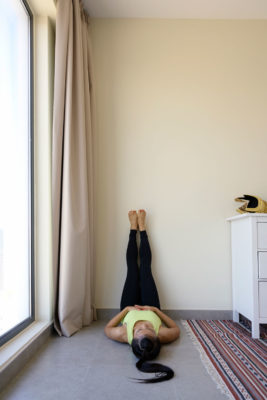
Exercise Could Boost Your Memory For 24 Hours
By
1 year ago
Scientists have found more evidence that working out improves cognitive function
Many of us swear by morning exercise to jumpstart the day, but new research suggests the mental benefits of a workout could last longer than previously thought – particularly when it comes to memory function.
Exercise And Memory: How Are They Linked?
A study from University College London has found that just 30 minutes of moderate physical activity – paired with sleeping for at least six hours – could help boost memory for 24 hours. Participants, who were aged between 50 and 83 years old, were asked to wear an accelerometer for eight days to track their sleep and physical activity. Every day, they were also given simple cognitive activities designed to test their memory, attention and processing speed.
‘Our findings suggest that the short-term memory benefits of physical activity may last longer than previously thought, possibly to the next day instead of just the few hours after exercise,’ said the study’s lead author Dr Mikaela Bloomberg. ‘Getting more sleep, particularly deep sleep, seems to add to this memory improvement.’
This doesn’t mean you need to be going to an intense spin class every day. ‘Moderate or vigorous activity means anything that gets your heart rate up – this could be brisk walking, dancing or walking up a few flights of stairs,’ says Bloomberg. ‘It doesn’t have to be structured exercise.’

Getty Images
How Much Exercise Do You Need To Do?
The study also suggests the more exercise, the better: each 30-minute increase in physical activity resulted in a two to five percent increase in memory scores the following day. Being active throughout the day helped, too: the less time a participant spent sitting, the better their memory tended to be.
However, Bloomberg also pointed out some limitations of the study, including the fact that participants all had good general health and high levels of everyday physical activity. She added that it’s still not exactly clear what’s driving the memory boost the following day, as benefits from neurotransmitters are only thought to last for a few hours.
Nonetheless, there’s plenty of evidence showing the cognitive benefits of exercise, particularly in the morning. A 2019 study published in the British Medical Journal, for instance, found starting your day with a workout can improve your attention and decision making skills.
So how much should we be aiming for? For adults aged between 19 and 64, the NHS recommends 150 minutes of moderate, or 75 minutes of intense, physical activity per week. This could be split up into small amounts per day, though – micro workouts are one of the biggest expert-approved trends of the moment.
























